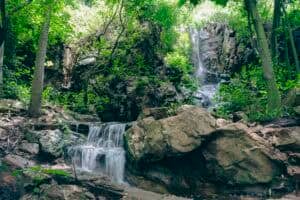The lions were shot dead from a helicopter on Tuesday after two escapes in a 24-hour period. They also killed 10 sheep on a neighbouring farm.

The killing of seven “damage-causing” lions at the Karoo National Park outside Beaufort West in the Western Cape has drawn hefty reactions from a number of wildlife organisations.
The lions were shot dead from a helicopter on Tuesday after two escapes in a 24-hour period. They also killed 10 sheep on a neighbouring farm.
SANParks spokesperson Rey Thakhuli said the pride was considered a “damage-causing group of animals” that was concentrated in the high mountainous areas next to the northern boundary of the park, causing a serious risk to human life and livestock, News24 reported on Wednesday.
But on Thursday, animal welfare organisations reacted with shock at the killing of the pride.
Fiona Miles, director of FOUR PAWS in South Africa, said Tuesday was a “very tragic day for the wild lion population of South Africa”.
“The existing damage-causing animal policy guidelines state that problem animals are usually a man-induced problem and management action should be focused on finding a non-lethal option where there is no immediate life-threatening situations.
“By maintaining quality standards and regular fence and perimeter checks, this could have been avoided.”
Miles said the onus was on parks to ensure proper predator-proof fencing was erected to minimise conflict with neighbouring communities.
“More instances of this nature will occur if there is not a commitment undertaken to fix the long-term issue with fencing.
“Appropriate preventative steps should have been taken after the first escape of the lion pride given the likely probability for a second attempt.
“The loss of an entire pride can have an enormous impact on the entire ecosystem and biodiversity. By removing these wild lions, a significant loss in the gene pool will occur and impact the already dwindling wild lion population of the country.
“With no human life in immediate threat, the measures taken by slaying a tribe has been excessive and should never have occurred in the first place. With proper management, this situation could and should have been avoided at all cost,” Miles said.
Audrey Delsink, director of wildlife at Humane Society International – Africa, told News24: “With fewer than 25,000 wild lions left on the continent, Africa’s lions are in crisis.”
“In South Africa, fewer than 3,000 wild lions remain. The euthanasia of an entire pride in the Karoo National Park, a unique ecosystem and lion population itself, is a definite blow.
“While conservation officials are charged with managing human-wildlife conflict and so-called damage-causing animals, lethal control should always be the absolute [last] resort.
“We trust that this was the case and, if so, we are deeply disappointed that no other alternatives such as recapture and/or relocation to another venue were feasible or possible. African lions need support and non-lethal conflict mitigation strategies should prevail,” Delsink said.
When approached for comment, SANParks’ Fayroush Ludick said there were plans to host a webinar to address the issue.
Once the details are available, it will be added.
For more news your way, download The Citizen’s app for iOS and Android.






